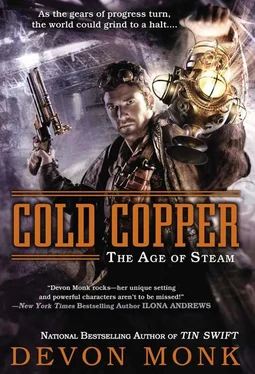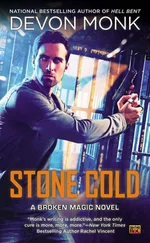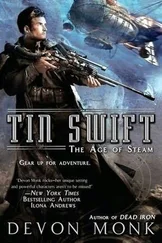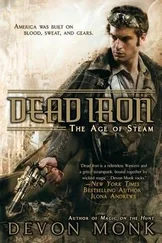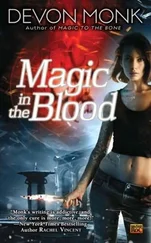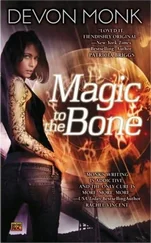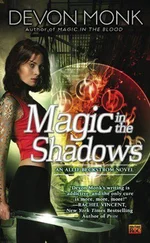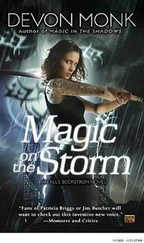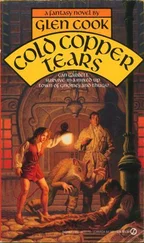“Not much,” Wicks admitted. “We know Alabaster was raising men and dealing in glim trade he transported by air. One of the main drop points was Cedar Falls, just west of here and easy rail to Des Moines. If those copper globes were filled with glim, it likely came from the western mountains to Alabaster, then by airship to train, and train to here.”
“Are all the Vosbroughs set up in this town?” Hink asked.
“No. Killian is here. His brother is in Chicago and sister is in New York.”
Hink nodded. That was something he seemed to already know. Rose wondered why he didn’t tell Wicks about the puppet, the possible homunculus, but maybe he was smart not to do so. Wicks had fooled her before; she wasn’t feeling favorable to trusting him again so quickly.
“Any news on what the Vosbrough siblings are doing, specifically?” Hink pressed.
Wicks shook his head. “Nothing the papers wouldn’t print.”
The wagon jerked and came to a full stop. Moments later, the bar was lifted from the doors, and when the door was opened, the full light of dawn freshened up the darkness. Rose held her hand over her eyes to block the worst of the glare.
And saw the row of men outside the wagon, all armed, all wearing green and gold with armbands embroidered with the initials VB. A personal guard? Or maybe just the town police? She didn’t know.
“This way.” It was the same dark-eyed man from the warehouse.
Hink sighed, as if tired of the whole thing, slapped his thighs, and then stepped out of the wagon, being sure to stretch up to his full six-and-a-half feet.
The men in the line below gripped their guns a little tighter. Hink could be an intimidating presence when he wanted to be.
“Fine city you got here,” Hink said. “Real nice welcome a fellow gets, plus a free ride to town.” He stepped down to the ground and held his hand out. Rose took his hand and walked down the steps. She tried to smile, but couldn’t hide her worry.
That was a lot of firepower pointing at them. She heard Wicks climbing out of the wagon, but her eyes were suddenly too full of the sights to pay him much attention.
They were standing on a lovely street with brick buildings that reached high enough to scratch the underbelly of heaven. Windows lined the buildings in neat rows, trimmed with scrolling edges and woodwork. And all the way down the street, she could see people in winter coats and bright scarves hurrying here and there. Some stopped to stare at them curiously. Women in fine wool and furs, men in sharp hats, and lots of working folk too, in heavy boots and practical headwear to ward off the cold.
At the farthest end of the street, hovering over the building like a child’s kite, was a plump little airship. It was tied by cable to the street, and its open-deck gondola showed cargo being lowered by rope and pulley—bags of grain and barrels of oil or maybe wine—to the building below it.
It was a loud, busy, exciting place, and even though she should fear for her very life, she couldn’t tamp the thrill out in her heart. This was such a grand sight; something she’d never seen before, never known before. The giddy rush of it warmed her like a fire against the winter.
A city. She, Rose Small, was standing in a city.
“Rose,” Hink said softly.
She looked away from the wonders and to him. He spared her a slight raise of eyebrow and smile. He knew how much this meant to her. He knew how much she loved seeing the world. And would willingly spend her whole life seeking out and unwrapping new bits of it to savor.
“This way,” he said.
That’s when she noticed Wicks and four or so men were already walking into the building they had stopped in front of. Hink started off toward it, and she went with him.
“What did I miss?” she whispered as the men closed in behind them.
“Just that we’re to meet the mayor.”
“Oh,” she said. And the wonder and excitement went cold under that notion.
She stepped through the door and into a carpeted room with walls painted cream and blue, broken up a bit by oil portraits framed in gold. The ceiling was made entirely of copper, and buffed to an ember shine.
It appeared to be a large meeting room or a place where official business might be conducted. A slab of wood the color of rubies filled the center of the room, with ornate chairs set around it. A small desk rested in the corner of the room, and from that desk, a twist of copper cables the size of her arm attached to the wall near a window. A telegraph station was set up on the desktop and a box with other levers and curious switches stood nearby.
But for all the grand nature of the room, it was the man who sat at a kingly desk at the far center who caught her eye.
“Well, well. What do we have here, Sheriff?” he asked in a friendly tone.
The man was of medium height, blond hair caught in a curl beneath his ears, and nose broken and healed at least once. He smiled from behind his desk, and leaned forward a bit in his chair, propping his elbows across a spread of paperwork. One of his hands was bandaged and it appeared his other was rather badly bruised.
Looked like he’d recently been in a fistfight, even though he was dressed in a fine brown pinstripe suit with fur trim at the lapels that probably cost more than all the belongings Rose could call her own.
“Mayor Vosbrough, we found these people in the warehouse by the ship fields.”
“Really? Where exactly?”
“Underground.”
The mayor’s friendly smile tightened along with his eyes.
“Who are you, friends, and why were you on my private property?” he asked.
“Sir, Mayor, sir,” Wicks said, walking forward and offering his hand to shake. One of the sheriff’s men stood in front of him, blocking his approach.
“I am Thomas Wicks,” he said, dropping his hand and giving a nervous smile. “Very pleased—no, honored—to be in your presence.” He bowed.
“I like your manners, Mr. Wicks,” the mayor said. “Thomas, was it? But I don’t stand on such formalities here. Come on up closer. We’re all friends.”
The gunman moved aside and Wicks pulled off his hat and held it in front of him. “I do hope we haven’t offended you in any way,” he said. “We just came into town, and got turned around by the weather while looking for lodgings.”
“It has been cold out, terribly so,” Vosbrough agreed. “And I suspect you only dashed into the warehouse to duck the wind. Is that the story you’re going to tell me, Mr. Wicks?”
Vosbrough was still talking like they were the best of friends, but there was a hard glitter to his eyes.
“Well, it’s…it’s the truth,” Wicks said, doing a damn fine impression of a man who was flustered and confused and nervous.
Rose might hate that he had fooled her with his acting, but right now she sincerely hoped he could do the same to Vosbrough.
“And you, sir? What’s your name?”
“Captain Hink, of the airship Tin Swift .”
The mayor paused. “I’ve heard of the Swift. Rumor is she’s fast.”
“There isn’t a ship faster that burns the sky.”
“What are you doing in my fine city, Captain?”
“We ran into some trouble back out Oregon way,” Hink said. “Looking for some parts to repair my ship.”
“You’ve come a long distance for a bolt or cog,” Vosbrough noted.
“Don’t need a bolt or cog. I need a deal.”
Wicks frowned, looking genuinely confused this time. Rose tried not to bite her bottom lip or otherwise look concerned. She had no idea where Hink was going with this.
“A deal? With whom?”
“You, Mayor. I’ve got the fastest ship in the western sky, can harvest more glim in one haul than any of the bigger blowers, and am in need of money for repairs.”
Читать дальше
